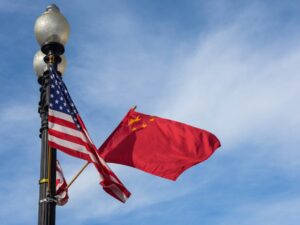
Salta, for its part, has signed strategic agreements with Chinese institutions to promote cultural activities, while also attracting investments in order to inaugurate its first lithium carbonate production project in 2024. Initiatives such as these are being replicated, to a greater or lesser extent, in different Argentine provinces.
The strengthening of subnational ties with China has had significant implications for both the provinces and the federal state. Chinese investments have responded to demands for financing that national governments have been unable to meet. However, this intensification of ties has revealed some disarticulations between the provinces and the federal state.
Among the outstanding challenges, both at national and provincial levels, is the lack of a defined model for lithium exploitation, and the absence of policies that encourage the transfer of knowledge and technology from foreign investment. Argentine provinces that are part of the so-called “lithium triangle” are developing projects without adding local value to the lithium extracted. Political ups and downs following changes in the Argentine presidency have also generated some uncertainties in subnational initiatives, affecting continuity and causing discomfort among Chinese investors and companies. In general terms, there is a lack of a defined policy regarding the lithium production model, which can articulate both national and subnational interests.
As a result, the provinces of the double periphery have found in China a key partner to boost their development, especially through renewable energy and lithium projects. For Chinese investors and companies, initiatives such as these allow them to locate companies and capital, while securing essential elements such as lithium, helping the country’s industry to maintain leadership in the energy transition. For Argentina’s double periphery, these projects allow for the diversification of local productive activities. However, there are some warning signs linked to the lack of technology and knowledge transfer, and environmental impacts, among others.
To maximize the benefits of a sometimes challenging relationship with China, it is essential to improve coordination between national and subnational levels, and to develop policies that promote technology transfer and the creation of value chains from natural resources available throughout Latin America. There is a clear need to integrate the development interests of the provinces into the design of Argentina’s foreign policy, a challenge that remains to be taken up.
Note: This article is republished from Dialogue Earth through a cooperation agreement between both parties for the dissemination of journalistic content. Original link.
Source: https://reporteasia.com/opinion/2024/08/21/china-reconfiguracion-america-latina/

